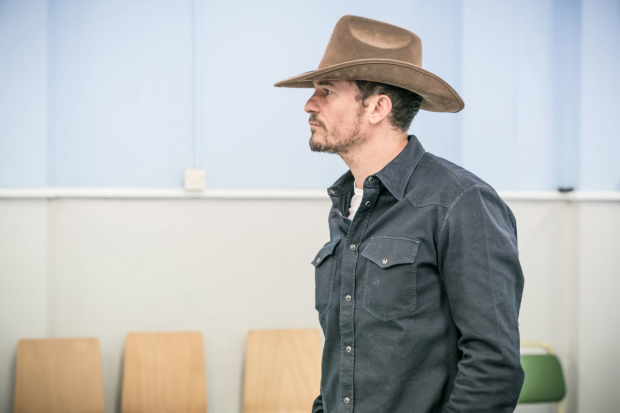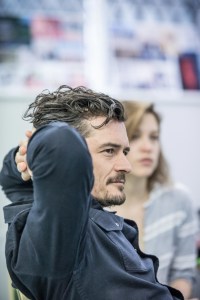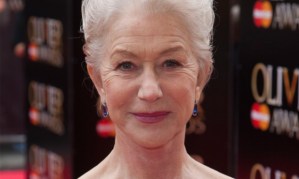'Killer Joe is truthful and real and it's vital that it's onstage right now'
Emily Dobbs, the producer of the upcoming revival of Tracy Letts’ play starring Orlando Bloom, explains why it’s a piece for our times

© Marc Brenner
From the first time I read Killer Joe a decade ago, whilst at drama school, it fascinated and disturbed me in equal measure. An exhilarating, blackly comic, cocaine-fuelled deconstruction of humanity. Its fierce heart and damaged soul resonated with me so profoundly I decided then that I would produce it.
Fast-forward ten years and here we are, about to open Tracy Letts' first play, and, to my mind, his most powerful. I produced another of Tracy's plays – Bug – at Found111 two years ago and Simon Evans, the director, and I spoke then about wanting to do Killer Joe together and how now was an important time to stage it. Twenty five years after it was first written, it is terrifyingly prescient and has an immediacy that it didn't have, or perhaps that I didn't want to acknowledge, before.
The horrors depicted in Killer Joe are brutal and they are real
America, and indeed the UK stand on a dangerous precipice – that of a two class society. The poor are getting poorer and the rich are getting richer. But there is an unnerving aspect now that I'm not sure existed before; human empathy. In other words, humanity. This, for me, is what Killer Joe represents. The neglected and dispirited underbelly of society, who have had their tongues cut out, are attempting their own revolution. In Killer Joe this takes place within the four walls of a trailer home. Husband turns against wife, brother against sister, mother against child. The horrors depicted in Killer Joe are brutal and they are real. They are desperate people trying to claw their way out of a socially imposed prison, at best to find a better life, at worst, simply to survive.
We live in a society of blame, and deferred responsibility. "Well, he's a smackhead so he brought it on himself". "She spends all her money on alcohol so why should the state support that". It's hard, it's cold and it's callous. There is no collective social responsibility for vulnerable people who need help.
The people in the play don't have access to the things we all take for granted
The people in Killer Joe are broken people, born into a life that they did not choose. They are not educated, they don't have access to the things we all take for granted. They are searching for something, a fragmented distillation of the American Dream. But foremost they are searching for themselves and some sense of identity.
I remember at our small town Midlands primary school my brother – aged eight – who is dyslexic, being told that his work wasn't good enough to be put up on the assembly wall. All the other kids in his class had their work put up. But in the first decade of his life he was already labelled "thick" and "not good enough". Of course he wasn't thick, he was brighter than most but the teachers were either not attentive enough or just too pressured to understand someone who could not spell or write properly.
The knock on effect of kids at school is of course huge. Self-confidence is pummelled and the child grows up thinking they are worthless. Self-fulfilling prophecy ensures that they become trapped by this misrepresentation and by god it takes some strength to pull yourself out of those chains.
The ravaged look in Sharla's eyes at the end of Killer Joe is the look of someone who has endured. Endured poverty, endured ignorance, endured life. These are people who have been dealt a sh*t hand and then been kicked to the side of the road. Yet, they keep fighting, and they keep trying to connect. Killer Joe is prescription for our times.



















